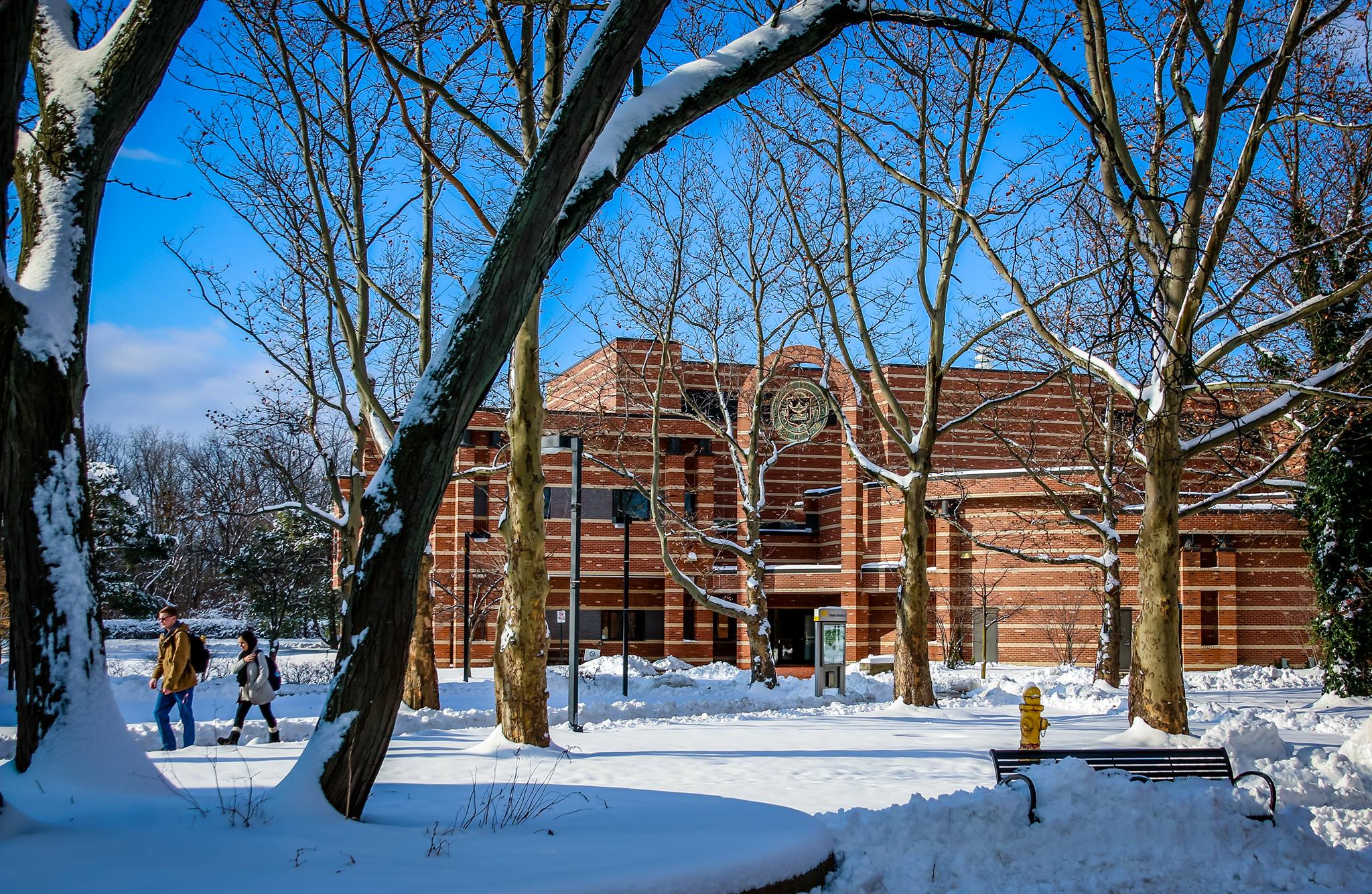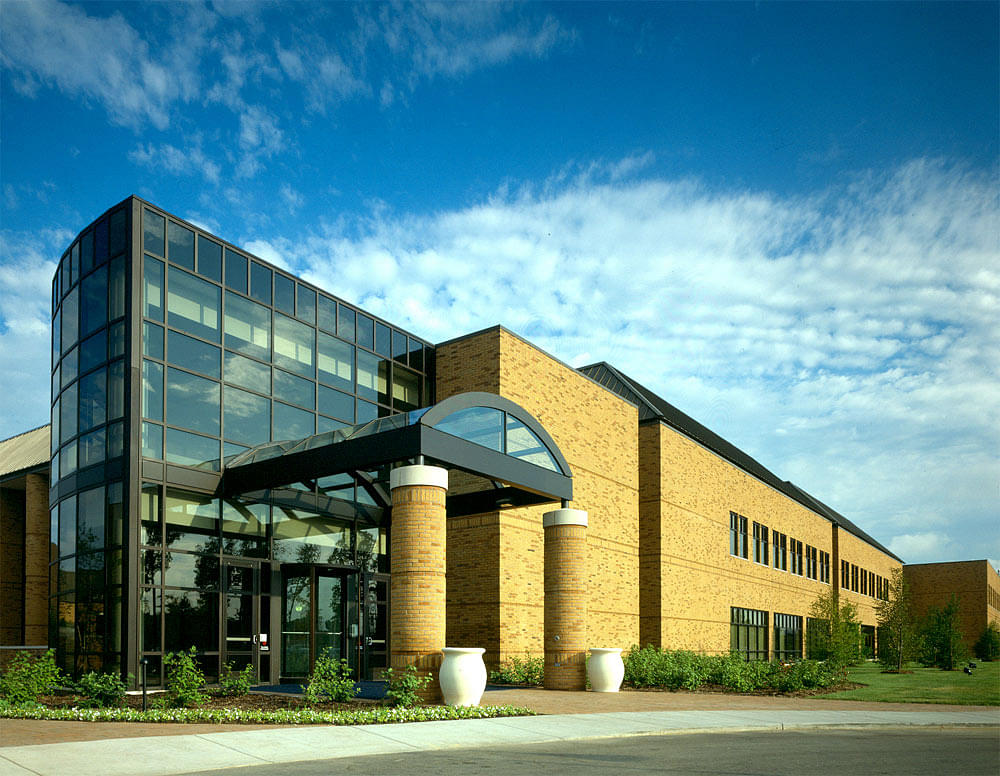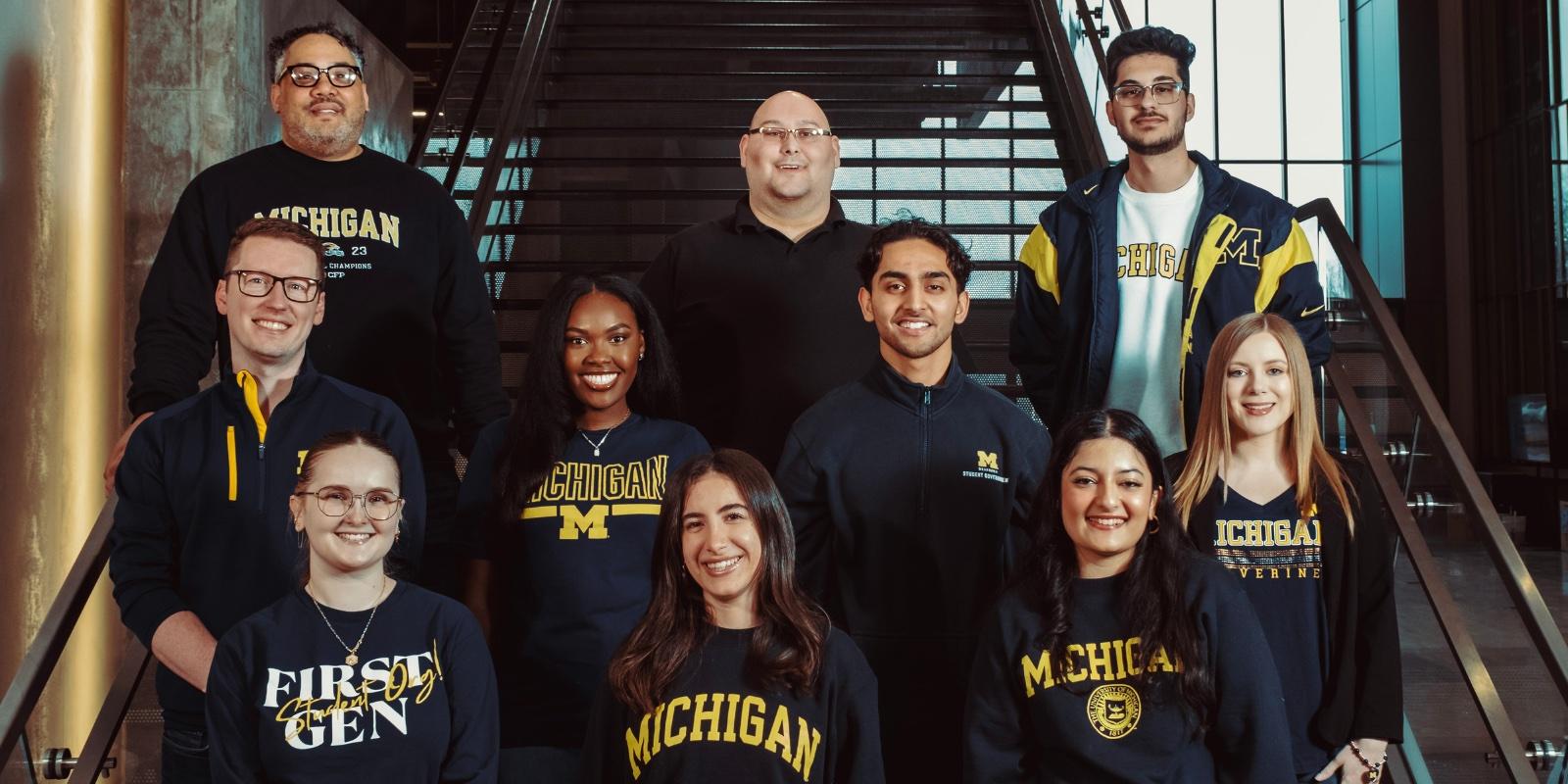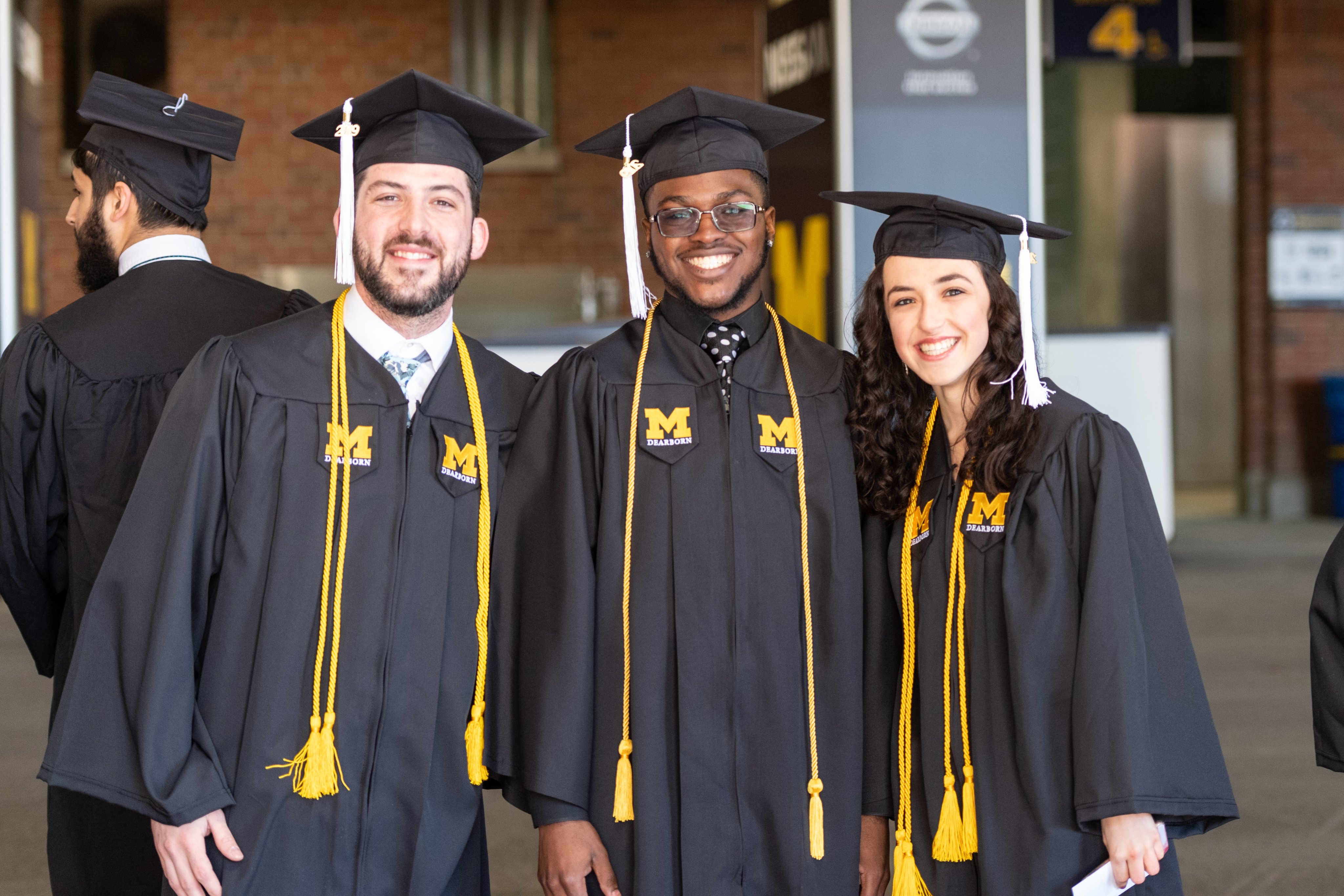The University Of Michigan is a leader in caring for our planet. It offers many programs for managing resources responsibly. This includes cutting-edge research.
From creating new ways to use renewable energy to making the whole campus a green place, U-M works for a better future. Its efforts are broad and dedicated.
Key Takeaways
- The University of Michigan is a leader in sustainability programs and environmental responsibility.
- Researchers at U-M have been awarded a $6.5 million grant to study the links between climate change, algal blooms, and human health.
- U-M’s sustainability efforts span renewable energy research, green campus initiatives, and interdisciplinary approaches to environmental challenges.
- The university’s Great Lakes researchers are at the forefront of understanding the impacts of climate change on the region’s ecosystems.
- U-M’s commitment to sustainability is reflected in its diverse range of programs and its focus on practical, real-world solutions.
Introduction to University of Michigan’s Sustainability Initiatives
At the University of Michigan School for Environment and Sustainability (SEAS), the focus is on real-world change. Through research and action, the university tackles important environmental issues. It offers top-notch environmental educational programs in the U.S. These programs help students from all areas learn to lead in sustainability.
The university is serious about making the world sustainable. SEAS gives students what they need to solve big environmental problems. With these tools, they can make their communities and the world better.
“At SEAS, we believe that sustainability is not just a buzzword, but a fundamental necessity for the future of our planet. Our programs are designed to empower the next generation of sustainability leaders to tackle complex environmental issues with a multidisciplinary approach.”
The University of Michigan is widely known for its research in the environment and sustainability. It has a history of important discoveries and actions. As the SEAS school continues to grow, it stays at the front of the battle for a greener future.
SEAS offers a wide range of learning options, real-world projects, and teamwork opportunities. This mix helps students learn and apply their knowledge about environmental issues. Students interested in renewable energy, protecting ecosystems, or making sure everyone gets fair treatment can find what they need at the university. They get the support they need to follow their passions and create positive change.
World-Class Faculty and Research
At the University of Michigan’s SEAS, students are taught by top scholars and mentors. They are involved in cutting-edge research on sustainability. This work includes solutions from various fields to tackle big problems.
Interdisciplinary Approach to Sustainability Challenges
SEAS’ professors take a unique approach. They understand that big problems need many different solutions. They work together to create new, effective plans.
Systems-based Understanding of Environmental Systems
SEAS teaches its researchers to deeply understand our world’s systems. Things like water and energy are part of a big, connected picture. This helps them make real, lasting changes.
Promoting Social Equity and Environmental Justice
SEAS is also all about fairness and justice. Professors look at how social issues and environmental problems are linked. Their goal is to make the world more fair.
Their research is making a big difference. They work across many fields to solve tough problems. This is crucial for the planet and everyone living on it.
Small Community with Big Opportunities

At the University of Michigan’s SEAS, students get the best of both worlds. They enjoy an intimate community vibe within a world-class university. U-M is highly regarded, attracting top faculty and students globally.
Students at SEAS can take courses from many strong graduate programs. This cross-collaboration introduces them to diverse viewpoints and skills. It helps them tackle sustainability issues in a comprehensive way.
“The small size of the SEAS community means I get to work closely with my professors and peers, but I also have the resources of a top-tier research institution at my fingertips.”
Through hands-on work and real-life projects, SEAS students build skills for their careers. They learn from experienced faculty passionate about the environment. This learning model equips students for meaningful environmental work.
The SEAS environment is tight-knit and supportive, offering a platform for students from various backgrounds to prosper. Whether seeking a master’s, dual degree, or PhD, every student gets individual support and access to outstanding resources. This mix fosters a transformative learning experience at SEAS.
Customized Programs for Diverse Backgrounds

At the University of Michigan’s SEAS, they understand every student brings something special to sustainability. They offer many programs that can be changed to fit each student’s interests. This way, everyone has a chance to study what they love.
Tailored Master’s Programs for Professionals
Professionals with years of experience can enhance their expertise in sustainability at SEAS. They offer customized master’s programs designed for these individuals. These programs help professionals learn about sustainability in their specific field.
People already working in sustainability can design a master’s program that meets their goals. This means they can choose what they want to study. With this choice, they can make a program that fits their career and personal interests.
SEAS welcomes leaders from various sectors to join their programs and become experts in sustainability. Professionals can customize your university of michigan customized programs to suit their needs. This opportunity helps them become more effective in their work.
“The ability to tailor my SEAS master’s program allowed me to gain specialized knowledge in areas that were directly relevant to my work in the non-profit sector. This has been invaluable in helping me drive real change within my organization.”
– Jane Doe, SEAS Master’s Graduate and Sustainability Nonprofit Leader
Real-World, Valuable Experiences
The University of Michigan’s School of Environment and Sustainability (SEAS) offers students unique chances to make a real difference. They use a special group model for their master’s projects. This helps students learn leadership, teamwork, and creates tangible change.
Collaborative Master’s Projects
At SEAS, students take part in university of michigan real-world experiences through team projects. They get to work together on big environmental issues. These seas master’s projects help them use what they’ve learned to solve real problems, working with local groups and experts.
Student Authorship and Conference Presentations
Some SEAS students get to publish their work before they finish school. This gives them the chance to share their ideas at big conferences around the world. They bring fresh thoughts on sustainability to a wider audience.
“The group project model at SEAS has been instrumental in my development as a leader and change-maker. Working collaboratively with my peers to tackle real-world challenges has given me invaluable skills that I know will serve me well in my future career.”
– Sarah Hendricks, SEAS Master’s Candidate
| Key Highlights | Description |
|---|---|
| Collaborative Master’s Projects | SEAS students work in teams to address complex sustainability challenges, gaining practical experience in leadership and problem-solving. |
| Student Authorship and Presentations | Many SEAS students become published authors and present their research at national and international conferences. |
Place-Based Learning and Field Study

The University of Michigan SEAS uses place-based learning in its programs. This lets students learn by exploring ecosystems. Michigan’s unique location by the Great Lakes makes it perfect for this type of learning.
Exploring Michigan’s Great Lakes Ecosystems
Much of Michigan’s life revolves around the Great Lakes. Students can see these ecosystems up close. They learn how everything in nature is connected.
- Conducting fieldwork in coastal wetlands to examine habitat restoration efforts
- Analyzing water quality and aquatic biodiversity in the Great Lakes
- Studying the impact of invasive species on the region’s ecosystems
University of Michigan’s Natural Areas and Facilities
At the University of Michigan, there are over 15,000 acres of natural spaces. These include the Matthaei Botanical Gardens and Nichols Arboretum. They are great for students to learn and research.
By visiting these natural areas, SEAS students understand nature better. They realize how important place-based learning is for our planet.
Career Support and Resources

At the University of Michigan’s School of Environment and Sustainability (SEAS), students get lots of help for their future careers. They offer personalized guidance and practical skills for work in the environment and sustainability areas. The aim is to have students fully prepared for successful careers.
One major support is the university of michigan career support, focusing on job market navigation, resume building, and interview improvements. The seas career services team also provides a wide network, giving students the chance to find internships and mentors.
SEAS provides more than standard career support. They hold workshops and events about sustainability careers, touching on professional growth, starting your own business, and the newest trends in the field. These activities help students develop crucial skills, meet future employers, and learn about various career choices in sustainability.
“The career support I received at SEAS was instrumental in helping me secure my dream job in the renewable energy industry. The personalized coaching and networking opportunities were invaluable.”
In the end, SEAS’ extensive university of michigan career support and seas career services enable students to turn their education into influential, meaningful careers. They drive change in the environment and sustainability sector.
Engaged Alumni Network
The University of Michigan’s School of Environment and Sustainability (SEAS) has a strong group of alumni. They number over 12,600 worldwide. These sustainability leaders are creating positive changes for our planet.
Many of these alumni lead at top organizations. This includes the National Parks Service, the World Wildlife Fund, Tesla, and government agencies. They are pioneers in climate action, conservation, and more. They help SEAS students with advice and opportunities.
Alumni Game Changers in Various Fields
SEAS alumni are influencing many sectors. They’re tackling important environmental issues with their know-how. They help in areas from clean energy to social justice, bringing big changes.
- Alumna Jane Doe, now the Director of Sustainability at a major organic food company, is working to transform the supply chain and promote sustainable agricultural practices.
- Alumnus John Smith, a former National Park Ranger, now serves as the Deputy Director of the U.S. National Park Service, championing conservation efforts and enhancing public access to natural resources.
- Alumna Sarah Johnson, a policy advisor at a prominent think tank, is shaping environmental and climate policies at the highest levels of government, advocating for innovative solutions to address global sustainability challenges.
The university of michigan seas alumni alumni network is a key link. It brings together experts to work for a more lasting future. Their work is inspiration for SEAS students, helping to grow a community of nature-lovers and leaders.
Collaborative Sustainability Efforts at UM-Dearborn
The University of Michigan-Dearborn is making big steps in sustainability through teamwork. This work combines different specialties to deal with the many sides of sustainability. Sustainability is more than a trend here; it’s a value that reaches across the school’s efforts.
Faculty and researchers work together in a unique way at UM-Dearborn. They come from fields like engineering, urban planning, and more. By sharing their knowledge, they solve tough problems and get creative with solutions.
Local involvement is also key in UM-Dearborn’s sustainability projects. The school partners with groups outside like local governments and non-profits. This team effort makes sure UM-Dearborn’s work matches what Dearborn’s community really needs.
The university isn’t alone in this mission. Its role in the Southeast Michigan Sustainability Network is a great example. This network links universities, businesses, and others in southeast Michigan. Together, they aim to make the area greener and healthier for all.
Students are at the heart of UM-Dearborn’s sustainability push too. They learn by doing, working on real projects and studies linked to the community. This hands-on work makes their education richer, preparing them to lead in sustainability wherever they go.
UM-Dearborn’s way of working shows its true dedication. By bringing experts, the community, and students together, UM-Dearborn shines in the fight for a better planet. This model, built on teamwork and education, is the path to a greener future.
Also Read : Are There Scholarships For Online Students?
Conclusion
The University of Michigan teaches about sustainability through its School for Environment and Sustainability (SEAS). It prepares students and researchers for major environmental issues. They learn from top-notch teachers and get hands-on experience.
SEAS shows the different sides of protecting our environment. It lets students see Michigan’s unique nature and work on big projects. This prepares them for jobs that help the world stay green.
SEAS graduates go on to make big changes in many fields. The school’s strong network supports their success. The University of Michigan is a key place for people who want to make the world a better place.
FAQs
What sustainability programs does the University of Michigan offer?
The University of Michigan has many programs to promote green efforts. These include researching renewable energy and improving its campuses. The School for Environment and Sustainability leads in green studies. It makes sure students apply what they learn to real life.
What makes the SEAS faculty and research at the University of Michigan unique?
The SEAS professors are top-tier in their fields. They do meaningful research to improve our world. Their focus is on the environment and how it affects people.
How does the University of Michigan provide a small community experience within a world-class institution?
At SEAS, you get close-knit support at a top university. Despite its global reputation, it feels like being in a small, caring space. You get face time with exceptional teachers.
How can students customize their sustainability education at the University of Michigan?
Students at SEAS can mix and match courses to fit their goals. You can also get certificates or dual degrees. It’s perfect for those looking to stand out in the job market.
What real-world experiences and opportunities do SEAS students have?
SEAS students get to work on hands-on projects. These let them apply their learning in practical ways. They often get their work published.
How does the University of Michigan’s location and facilities support place-based learning?
The university’s surroundings offer labs like the Great Lakes. SEAS students have tons of land to study. This hands-on approach is invaluable.
What career support and resources does the University of Michigan provide for SEAS students?
SEAS invests heavily in helping grads find great jobs. They offer services for everything career-related, from internships to polishing your resume. It’s all about setting students up for success.
How are University of Michigan SEAS alumni making an impact?
SEAS grads are leaders in global green efforts. They work in various fields, guiding those who come after them. Their collective impact is significant.
How is sustainability collaborative at the University of Michigan-Dearborn?
The University of Michigan-Dearborn takes a team approach to being green. Everyone works together. This shows that being eco-friendly takes a group effort.
Source Links
- https://umdearborn.edu/sustainability
- https://seas.umich.edu/prospective-students/why-michigan/seas-approach
- https://seas.umich.edu/





